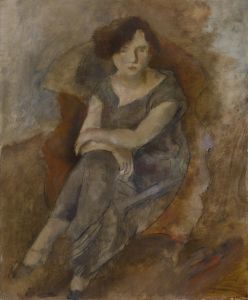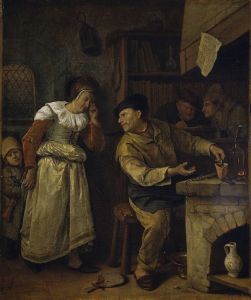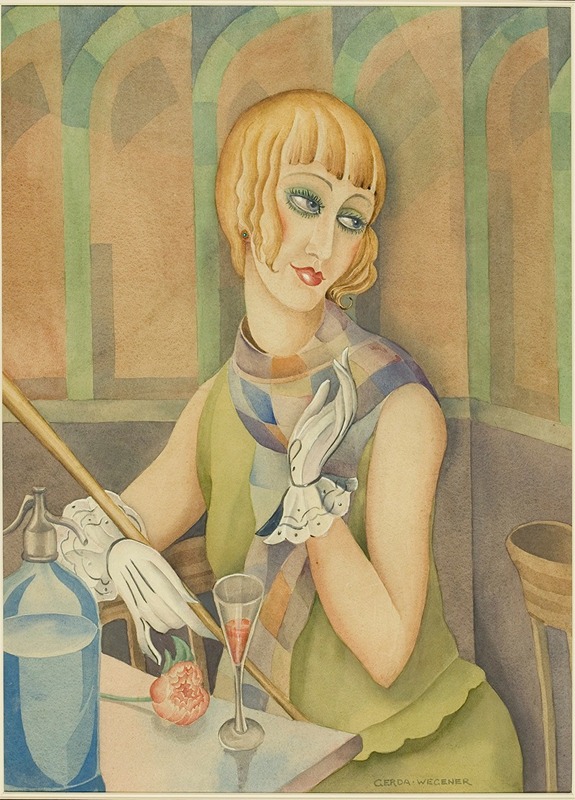
Lili Elbe
A hand-painted replica of Gerda Wegener’s masterpiece Lili Elbe, meticulously crafted by professional artists to capture the true essence of the original. Each piece is created with museum-quality canvas and rare mineral pigments, carefully painted by experienced artists with delicate brushstrokes and rich, layered colors to perfectly recreate the texture of the original artwork. Unlike machine-printed reproductions, this hand-painted version brings the painting to life, infused with the artist’s emotions and skill in every stroke. Whether for personal collection or home decoration, it instantly elevates the artistic atmosphere of any space.
Lili Elbe by Gerda Wegener is a portrait created by Danish artist Gerda Wegener, depicting Lili Elbe, one of the first known recipients of gender-affirming surgery. Gerda Wegener, a prominent painter and illustrator in the early 20th century, was known for her Art Deco-inspired works and her depictions of women, often characterized by their elegance and vibrant colors. Lili Elbe, born Einar Wegener, was Gerda's spouse and a fellow artist before transitioning.
The portrait is significant not only as a work of art but also as a historical document reflecting the relationship between Gerda and Lili, as well as the broader cultural and social dynamics of the time. Gerda frequently painted Lili, both before and after her transition, and these works are often celebrated for their sensitivity and beauty. The paintings also provide insight into Lili's journey and identity, as they capture her in various stages of self-expression.
Gerda Wegener's style in this portrait aligns with her broader body of work, which often featured bold colors, intricate patterns, and a focus on the subject's individuality. The painting of Lili Elbe is no exception, showcasing her as a confident and graceful figure. The exact date of the painting is not always clearly documented, but it is understood to have been created during the period when Gerda and Lili were living in Paris, a city that offered them a more liberal and accepting environment compared to their native Denmark.
Lili Elbe's life and story have garnered significant attention in modern times, particularly following the publication of her posthumous memoir, Man into Woman, and the subsequent adaptations of her story in literature and film. Gerda Wegener's portraits of Lili have thus gained renewed recognition for their artistic and historical importance.
While the specific details of this particular painting, such as its current location or ownership, may not always be readily available, it remains an enduring symbol of the intersection of art, identity, and personal transformation. The collaboration between Gerda and Lili, as artist and muse, continues to be celebrated as a unique and poignant chapter in art history.







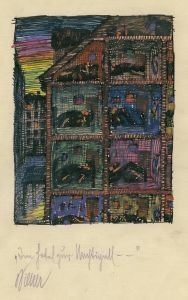


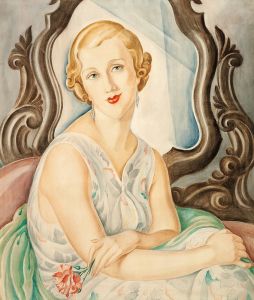
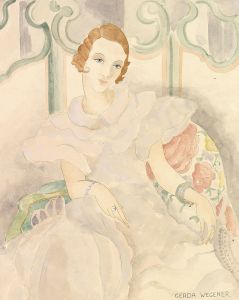

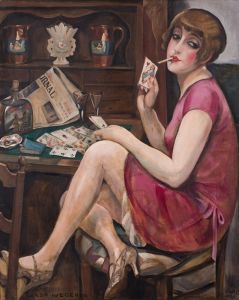
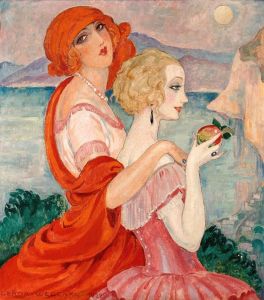
![Designs for Alamac Hotel Congo Room, 71st and Broadway, New York, NY.] [Six color studies of interior, furniture, and murals](/imgs/249310/s/winold-reiss-designs-for-alamac-hotel-congo-room-71st-and-broadway-new-york-ny-six-color-studies-of-interior-furniture-and-murals-3a813bdb.jpg)

